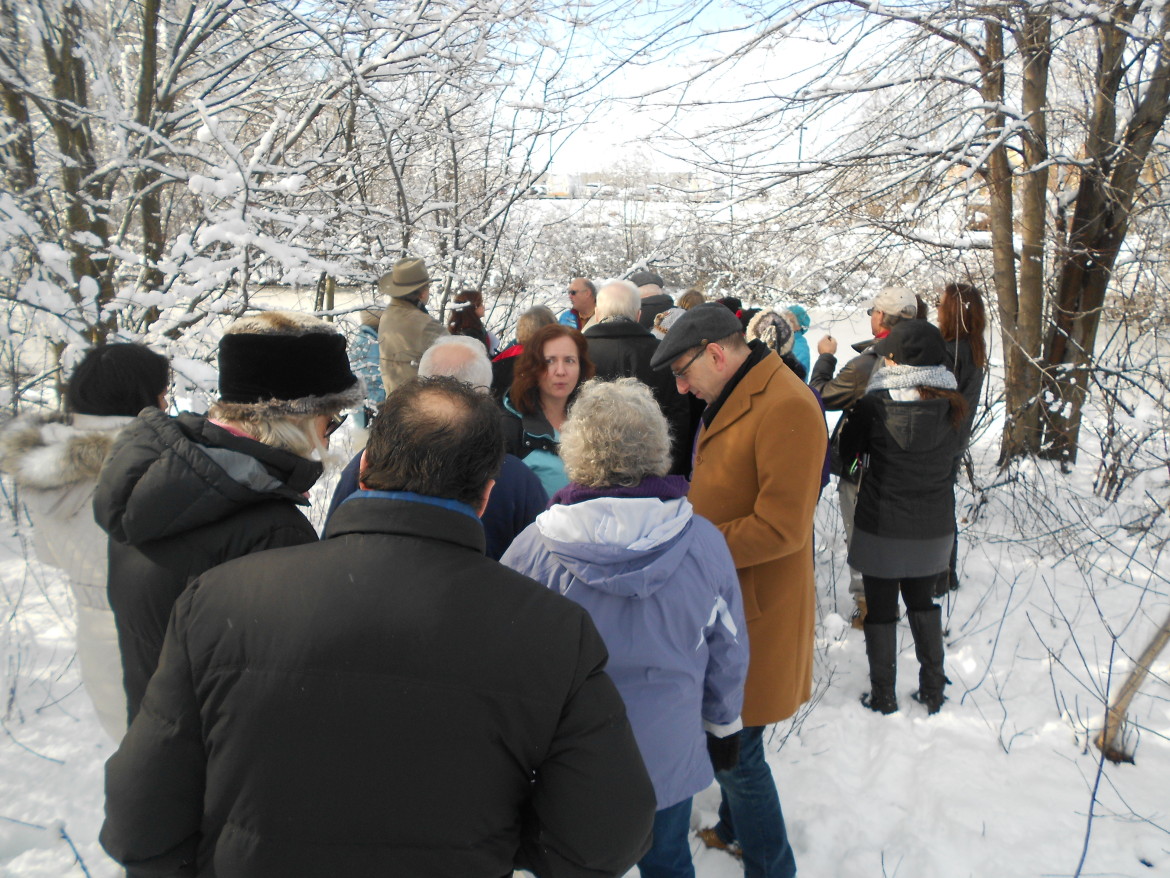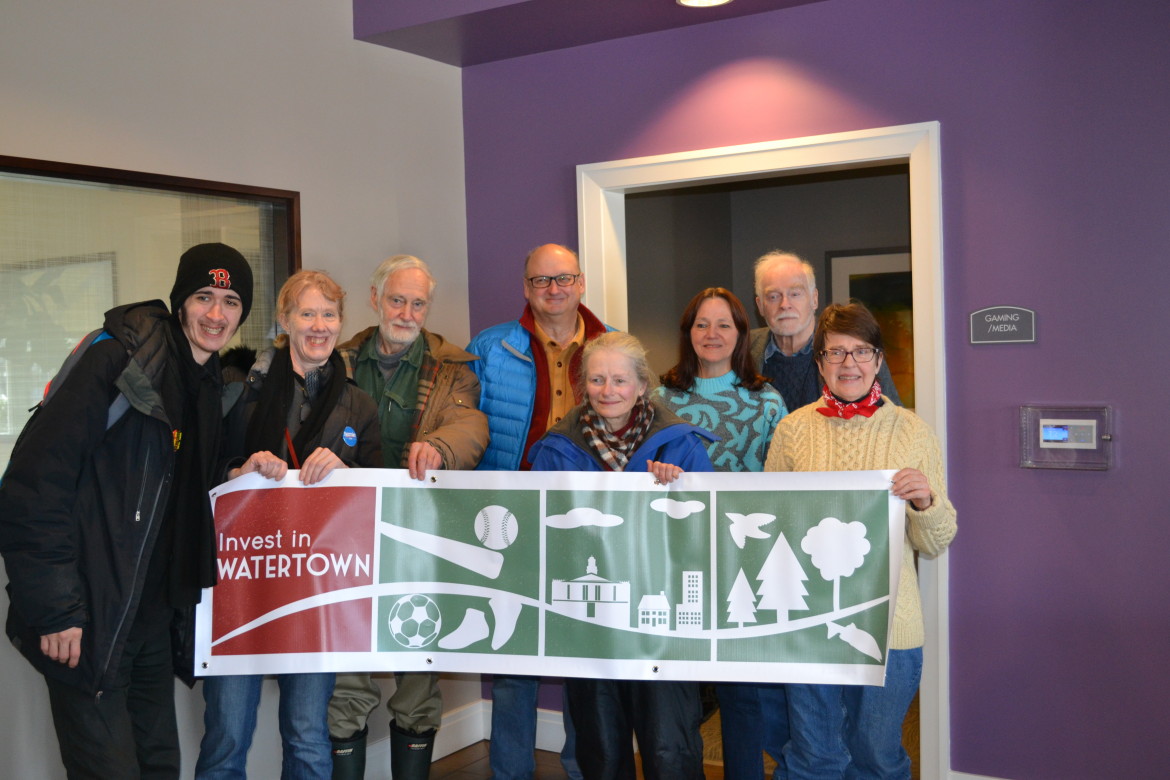
Invest in Watertown
A group of Watertown residents toured Walker Pond as part of the kickoff event for the Invest in Watertown group.
Invest in Watertown launched its effort to pass the Community Preservation Act (CPA) in town with a tour of an area that could be upgraded with funds from the CPA program.
The group submitted the following account of the day:
On Saturday, Feb. 6, a hardy group of some 50 persons aged 2 to 82 gathered near Walker Pond in western Watertown. Guided by Leo Martin of the Watertown Conservation Commission, they had come to view firsthand some of the town’s few remaining open spaces and officially launch Invest in Watertown, a campaign to bring the Community Preservation Act to Watertown.
The Community Preservation Act, enacted in 2000, enables Massachusetts municipalities to dedicate funds annually for the acquisition, preservation, rehabilitation and restoration of open space, affordable housing, and historic resources. The CPA also provides for the creation of open space and affordable housing, and the support of existing affordable housing.
Each participating town contributes a surcharge of one to three per cent on their property taxes, for a return by the State on this investment of over 25%. In Watertown the average homeowner would see a $108 increase annually (about $9 per month.) Low-income property owners and moderate-income seniors could obtain an exemption from the CPA surcharge. For instance, in 2015 a single homeowner with an annual income less than $55,160 qualified for exemption, as did a single senior homeowner with an annual income below $68,950.
As the Town Councilor representing this district of Watertown, Ken Woodland welcomed the crowd. He described his own family’s benefit from affordable housing while he was growing up in Watertown. He added that the recreational value of Watertown’s public open space had always been important to him.
Two-acre Walker Pond lies in a forested depression. Martin led the crowd to the one easily accessible point, on the grounds of the new Bell Watertown apartment complex. He described the possibility of encircling the pond with a rustic footpath, in collaboration with Waltham, which owns a segment of the western shoreline. The group then inspected a seven-acre derelict “brownfield” adjoining Walker Pond to the south. Martin expressed confidence that with CPA funding to purchase and restore the property, the town could create attractively landscaped playing fields there.

Invest in Watertown
The members of Invest in Watertown who seek to put the Community Preservation Act on the Watertown ballot this fall.
Jennifer Van Campen, Executive Director of Metro West Collaborative Development, an affordable-housing non-profit organization, provided an overview of the CPA’s functions and history, and led a question-and-answer discussion. All Watertown’s immediate neighbor towns, she said, had passed the CPA, most recently Belmont and Arlington.
Marilynne Roach, President of the Watertown Historical Society, provided a brief history of Walker Pond and environs. Councilor Tony Palomba concluded by inviting participants to help the Invest In Watertown campaign. It needs volunteers to collect signatures to put the CPA on the fall ballot. For more information visit: www.investinwatertown.org.